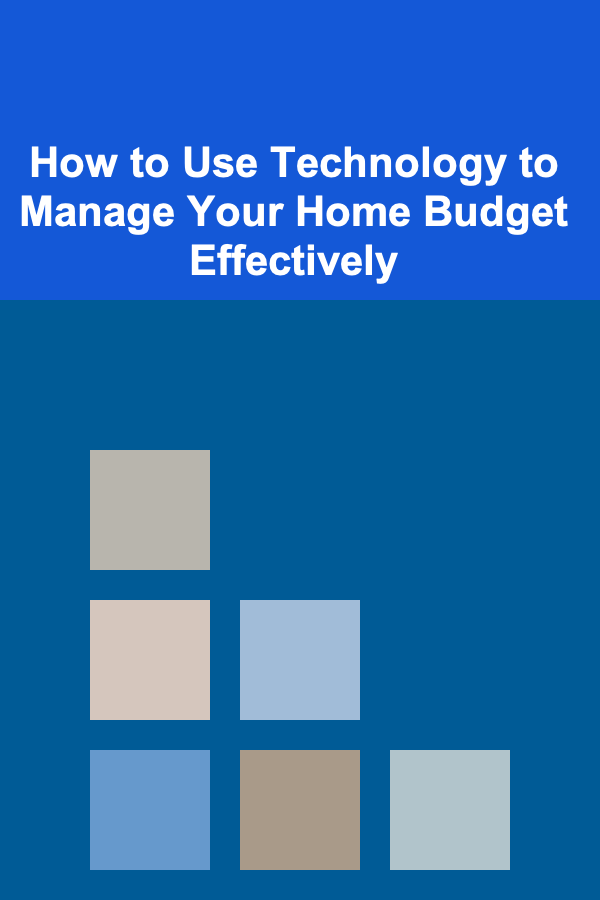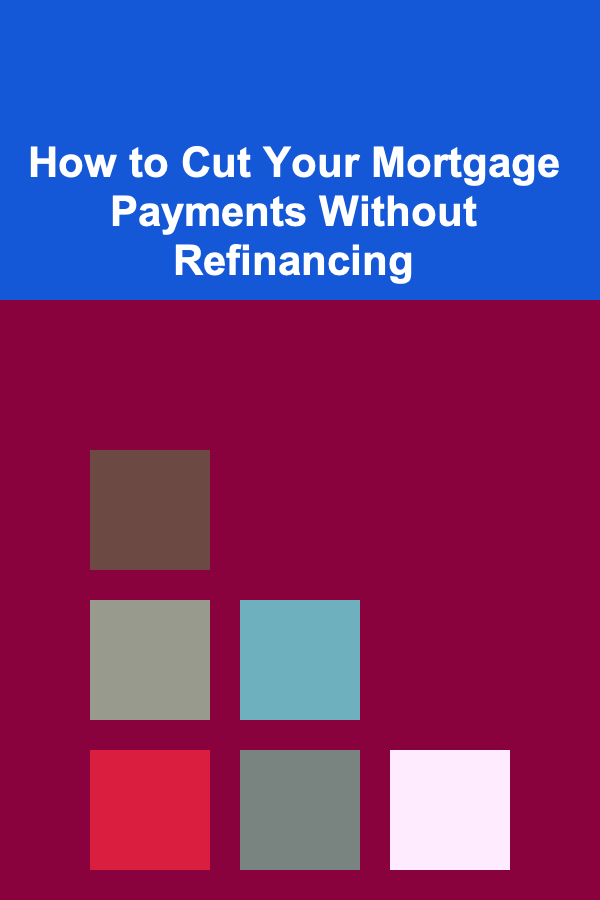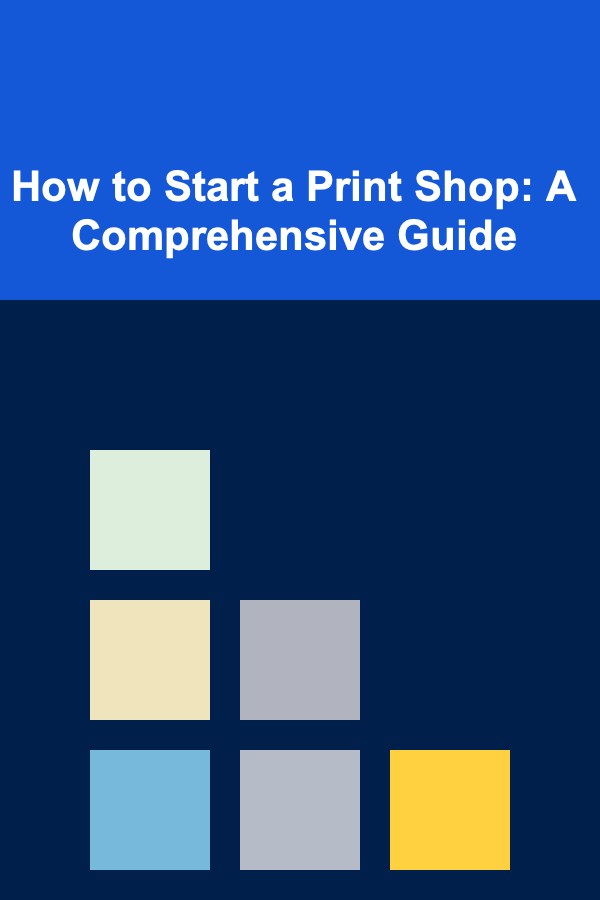
How to Use Technology to Manage Your Home Budget Effectively
ebook include PDF & Audio bundle (Micro Guide)
$12.99$8.99
Limited Time Offer! Order within the next:

Managing your home budget is one of the key pillars of achieving financial stability. As the cost of living continues to rise and financial responsibilities grow, keeping track of income, expenses, and savings has never been more important. Fortunately, technology has evolved to provide a wide array of tools and applications designed to help manage home finances efficiently. This article explores how to leverage modern technology to take control of your home budget, offering practical solutions, insights, and tips on tools and apps that can revolutionize the way you handle your household finances.
The Need for an Effective Home Budget
Before diving into how technology can be used to manage your home budget, it's important to understand why budgeting is crucial. A home budget helps:
- Control spending: Tracking your expenses ensures that you don't overspend on unnecessary items.
- Increase savings: By identifying areas where you can cut back, you can direct more money toward savings goals.
- Achieve financial goals: Whether you want to save for a vacation, pay off debt, or buy a new home, budgeting allows you to allocate resources to achieve these objectives.
- Reduce stress: Knowing where your money is going each month reduces financial anxiety and gives you more confidence in your financial decisions.
Without a budget, it's easy to lose track of where your money is going and find yourself living paycheck to paycheck. This is where technology can make a significant difference. By automating, tracking, and analyzing your financial habits, digital tools can transform how you approach budgeting.
Technology's Role in Budgeting
1. Budgeting Apps
One of the most impactful ways technology can help manage your home budget is through budgeting apps. These apps provide an intuitive, user-friendly interface that helps you track income and expenses, set financial goals, and make smarter financial decisions. Some of the most popular budgeting apps include:
Mint
Mint is one of the most widely used budgeting apps. It connects to your bank accounts and credit cards to track all your transactions automatically. The app categorizes spending into different categories like groceries, transportation, entertainment, etc. It also generates reports and provides budgeting recommendations based on your spending habits.
Features:
- Automatic transaction categorization.
- Monthly budgeting tool.
- Credit score tracking.
- Bill payment reminders.
- Financial goal setting.
The benefit of Mint is that it gives you a comprehensive view of your finances in one place, allowing you to quickly see where you stand with your budget.
YNAB (You Need A Budget)
YNAB is another highly regarded budgeting app, particularly for individuals who want to take a more hands-on approach to their finances. The app is built around the zero-based budgeting principle, meaning you allocate every dollar to a specific category, ensuring that no money is left unaccounted for. YNAB also offers educational resources to help users improve their budgeting skills.
Features:
- Zero-based budgeting method.
- Goal setting and tracking.
- Real-time syncing across multiple devices.
- Detailed reporting on your spending habits.
YNAB is particularly effective for people who want a more detailed, proactive approach to managing their finances.
PocketGuard
If you find traditional budgeting apps overwhelming, PocketGuard might be the right choice. It focuses on helping you identify how much disposable income you have after accounting for bills, goals, and other necessary expenses. It's ideal for those who want a simplified way of monitoring their budget without diving into every individual category.
Features:
- Simplified approach to budgeting.
- Tracks discretionary spending.
- Alerts you when your spending exceeds your budget.
- Helps you set savings goals.
PocketGuard is great for users who don't want to get bogged down by minute details but still want to keep track of their spending.
2. Expense Tracking Tools
Another important aspect of budgeting is tracking your daily expenses. With so many payment methods (cash, credit cards, online transactions), it can be difficult to remember where your money went. Here, technology plays a vital role in helping you keep track of every transaction in real-time.
Expensify
Expensify is an expense tracking tool that allows users to track receipts and expenses on the go. The app offers features like receipt scanning, expense categorization, and easy report generation, making it ideal for home budgeting as well as business-related expenses.
Features:
- Automatic receipt scanning.
- Expense categorization.
- Real-time expense tracking.
- Expense report generation.
Expensify is particularly useful for users who want a quick way to manage both personal and work-related expenses.
GoodBudget
GoodBudget is a virtual envelope budgeting system that helps you plan and track your household spending. It allows you to create envelopes for specific categories (e.g., groceries, utilities, entertainment) and allocate a set amount of money to each envelope. As you spend, you can mark off amounts in each envelope, giving you a visual representation of how much money is left in each category.
Features:
- Envelope-based budgeting.
- Syncs across multiple devices.
- Customizable categories.
- Cash flow tracking.
GoodBudget is an ideal solution for users who prefer the envelope budgeting method but want the convenience of digital tracking.
3. Bill Management and Automation Tools
Bills are a constant in any household budget. Managing due dates and avoiding late fees is an essential aspect of financial management. Fortunately, technology can help automate this process and ensure that you never miss a bill payment.
Prism
Prism is a bill management app that lets you link all your utility and subscription accounts to one platform. The app will notify you of upcoming bills, show your account balances, and allow you to make payments directly from the app.
Features:
- Bill reminders and due date tracking.
- Automatic bill payments.
- Integration with bank accounts for easy payments.
- Bill payment history and tracking.
Prism removes the stress of remembering multiple due dates, ensuring that you stay on top of your bills at all times.
Truebill (Now Rocket Money)
Truebill is another excellent tool for managing subscriptions. This app connects to your bank accounts and credit cards to help you track recurring payments. It identifies subscriptions you may have forgotten about, and in some cases, it can even negotiate lower rates for services like cable or internet.
Features:
- Subscription tracking and management.
- Automatic bill reminders.
- Subscription cancellation assistance.
- Spending analysis and recommendations.
Truebill is a great option for users who want to optimize their spending and cut out unnecessary subscriptions.
4. Savings Tools
Saving for the future---whether for retirement, a home, or an emergency fund---is one of the most important aspects of any budget. Technology has made saving money easier and more automated.
Digit
Digit is an app that helps you save money without thinking about it. It connects to your bank account and automatically transfers small amounts of money into a separate savings account. Digit uses algorithms to analyze your spending habits and determines how much money you can afford to save without impacting your daily life.
Features:
- Automatic savings transfers.
- Personalized savings goals.
- Spending analysis.
- Investment options for savings.
Digit is perfect for users who want to save passively and take the guesswork out of saving money.
Qapital
Qapital is another app that helps you save for specific goals. It allows you to set up "goals" such as saving for a vacation, a new car, or a rainy-day fund. You can automate savings transfers, set up rules (like rounding up purchases to the nearest dollar), and track your progress.
Features:
- Goal-based savings.
- Customizable savings rules.
- Visual progress tracking.
- Automatic transfers.
Qapital is great for users who want a more hands-on, goal-oriented approach to saving money.
5. Financial Planning and Investment Tools
For those looking to take their financial management to the next level, investing can be an important part of the home budget. Technology provides a wealth of tools for both novice and experienced investors.
Robinhood
Robinhood is a popular investment app that allows users to buy and sell stocks, ETFs, options, and cryptocurrencies without paying commissions. It's a great platform for beginners who want to dip their toes into investing without the complexity and fees associated with traditional brokerage accounts.
Features:
- Commission-free trading.
- User-friendly interface.
- Fractional shares.
- Real-time market tracking.
Robinhood is perfect for those interested in learning about investing without the intimidation of a complex platform.
Acorns
Acorns is an investment app that helps you invest spare change by rounding up your purchases and investing the difference in a diversified portfolio. It's an ideal tool for individuals who are just starting to invest or want a hands-off approach to growing their wealth.
Features:
- Round-up investment system.
- Automated portfolio management.
- Tax-advantaged accounts (like IRAs).
- Educational resources.
Acorns is excellent for users who want a simple, automated way to build wealth over time.
Conclusion
Managing your home budget effectively is crucial for achieving financial stability and long-term success. By leveraging the power of technology, you can automate your savings, track your spending, manage bills, and even invest for the future. Budgeting apps, expense trackers, bill management tools, and savings platforms all play a critical role in helping you stay organized, make informed financial decisions, and ultimately reach your financial goals.
The key to success in managing your home budget is consistency. By incorporating these digital tools into your daily financial habits, you can take control of your money and build a secure financial future. Whether you're saving for an emergency fund or planning for retirement, technology offers the solutions you need to manage your home budget effectively.

How to Cut Your Mortgage Payments Without Refinancing
Read More
How to Use Dropshipping Supplier Reviews to Make Informed Decisions
Read More
How to Deal with Jealousy in a Relationship
Read More
Mastering Counter-Stratagem in Competitive Play
Read More
How to Start a Print Shop: A Comprehensive Guide
Read More
Blanching and Shocking Vegetables: A Comprehensive Guide
Read MoreOther Products

How to Cut Your Mortgage Payments Without Refinancing
Read More
How to Use Dropshipping Supplier Reviews to Make Informed Decisions
Read More
How to Deal with Jealousy in a Relationship
Read More
Mastering Counter-Stratagem in Competitive Play
Read More
How to Start a Print Shop: A Comprehensive Guide
Read More